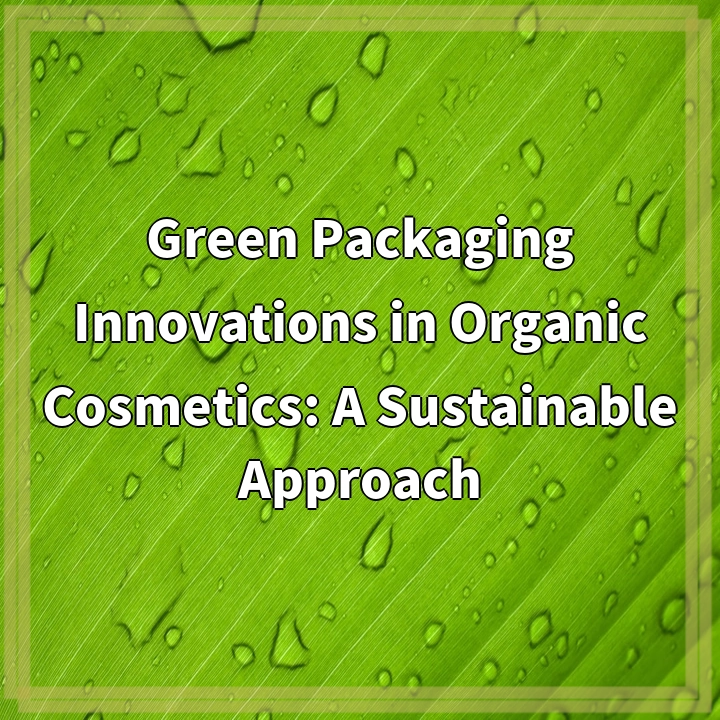What is Eco-Friendly Practices in Cosmetology?
Eco-friendly practices in cosmetology refer to the adoption of sustainable and environmentally responsible approaches throughout the entire lifecycle of cosmetic products. This includes ensuring that the ingredients used are sourced ethically and sustainably, minimizing waste and pollution during production and packaging, and promoting eco-conscious consumption among consumers.
Real-World Problems Associated with Eco-Friendly Practices in Cosmetology
1. Ingredient Sourcing:
The cosmetic industry often relies on unsustainable and harmful practices for sourcing ingredients. For example, some ingredients are derived from endangered plant species or require the destruction of habitats. This can lead to biodiversity loss and disrupt delicate ecosystems.
2. Plastic Packaging:
The use of non-recyclable plastic packaging is a significant concern in the cosmetic industry. With millions of beauty products sold every day, the amount of plastic waste generated is immense. Improper disposal of plastic packaging can end up in landfills or water bodies, causing pollution and harm to wildlife.
3. Water Consumption:
Many cosmetology practices, such as manufacturing, cleaning, and processing, consume substantial amounts of water. In water-scarce regions, this can exacerbate water scarcity issues and put pressure on local communities and ecosystems.
4. Chemical Pollution:
Traditional cosmetic formulations often contain chemicals that are harmful to human health and the environment. These chemicals can contribute to air and water pollution during production and usage, impacting both the environment and the well-being of individuals.
5. Lack of Transparency:
In some cases, cosmetic companies do not provide sufficient information about their sustainability practices, making it challenging for consumers to make informed choices. This lack of transparency hinders progress towards more eco-friendly practices in the industry, as it becomes difficult to hold companies accountable.
Addressing these real-world problems and transitioning towards more eco-friendly practices in cosmetology is crucial for the well-being of our planet and future generations. It requires collaboration between consumers, cosmetic companies, and regulatory bodies to encourage sustainable ingredient sourcing, promote innovative packaging solutions, reduce water and chemical usage, and enhance transparency throughout the industry.

Solutions to Eco-Friendly Practices in Cosmetology
1. Sustainable Ingredient Sourcing:
Emphasize the use of sustainably sourced and ethically harvested ingredients. This involves working with suppliers who prioritize sustainable agriculture and support local communities. Additionally, promoting the use of organic and natural ingredients can reduce the reliance on harmful chemical additives.
2. Environmentally Friendly Packaging:
Transitioning to eco-friendly packaging materials is crucial. Options include recyclable or compostable packaging, as well as reducing unnecessary packaging and opting for minimalist designs. Companies can also introduce refillable containers to minimize waste while maintaining convenience for consumers.
3. Water Conservation:
Implement water-saving practices in manufacturing processes, such as using water-efficient equipment and recycling water whenever possible. Additionally, raising awareness among employees and consumers about the importance of conserving water can help reduce overall consumption.
4. Safe and Non-Toxic Formulations:
Invest in research and development to create safer and more sustainable formulations. This involves reducing or eliminating harmful chemicals and opting for natural and non-toxic alternatives. Collaboration with regulatory bodies can help establish stricter guidelines for ingredient safety and disclosure.
5. Increased Transparency:
Enhance transparency by providing comprehensive information about product ingredients, sourcing practices, and sustainable initiatives. By prioritizing transparency, companies can build trust with consumers and enable them to make informed choices. Certifications from recognized eco-labels can also help establish credibility.
By implementing these solutions, the cosmetic industry can progress towards more eco-friendly practices. It requires commitment and effort from companies, along with support and demand from consumers. Together, we can create a more sustainable future for both our planet and the beauty industry.













